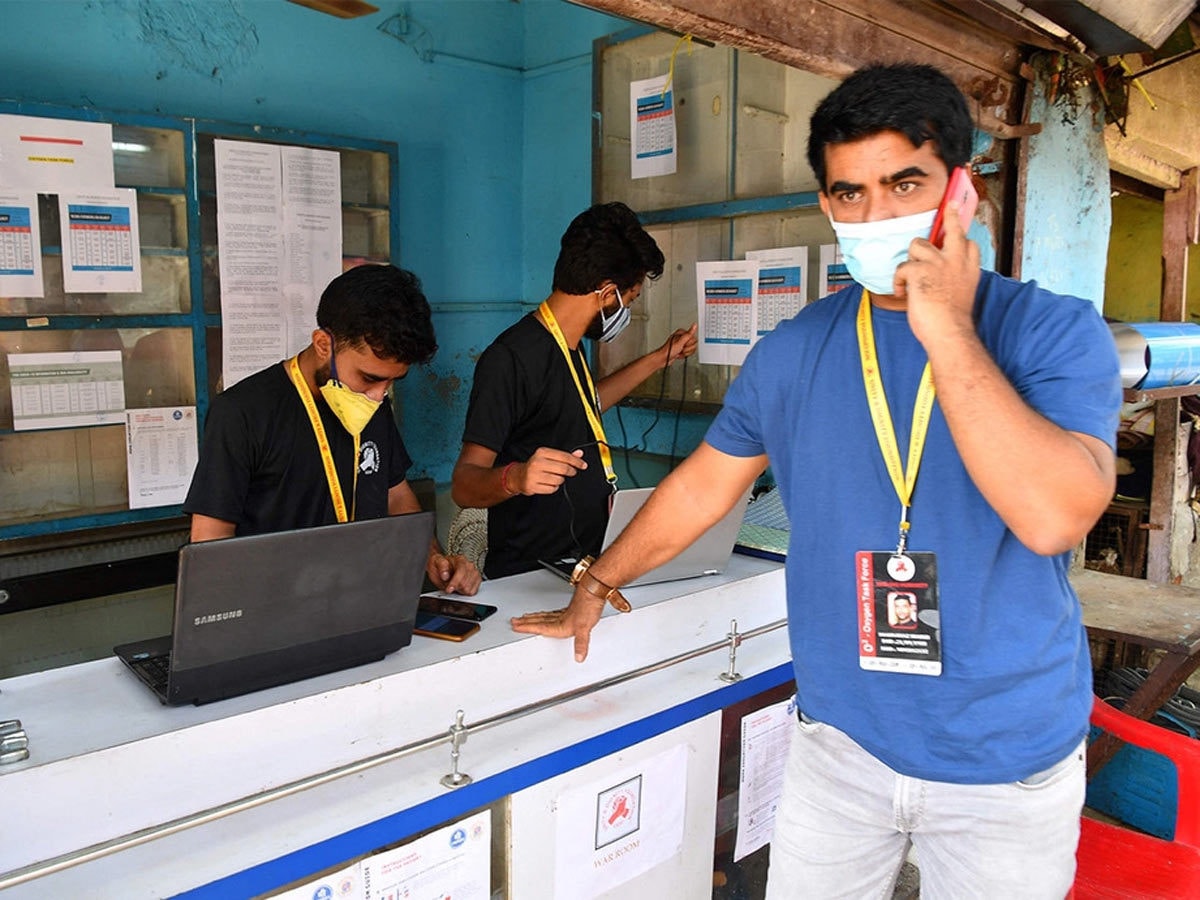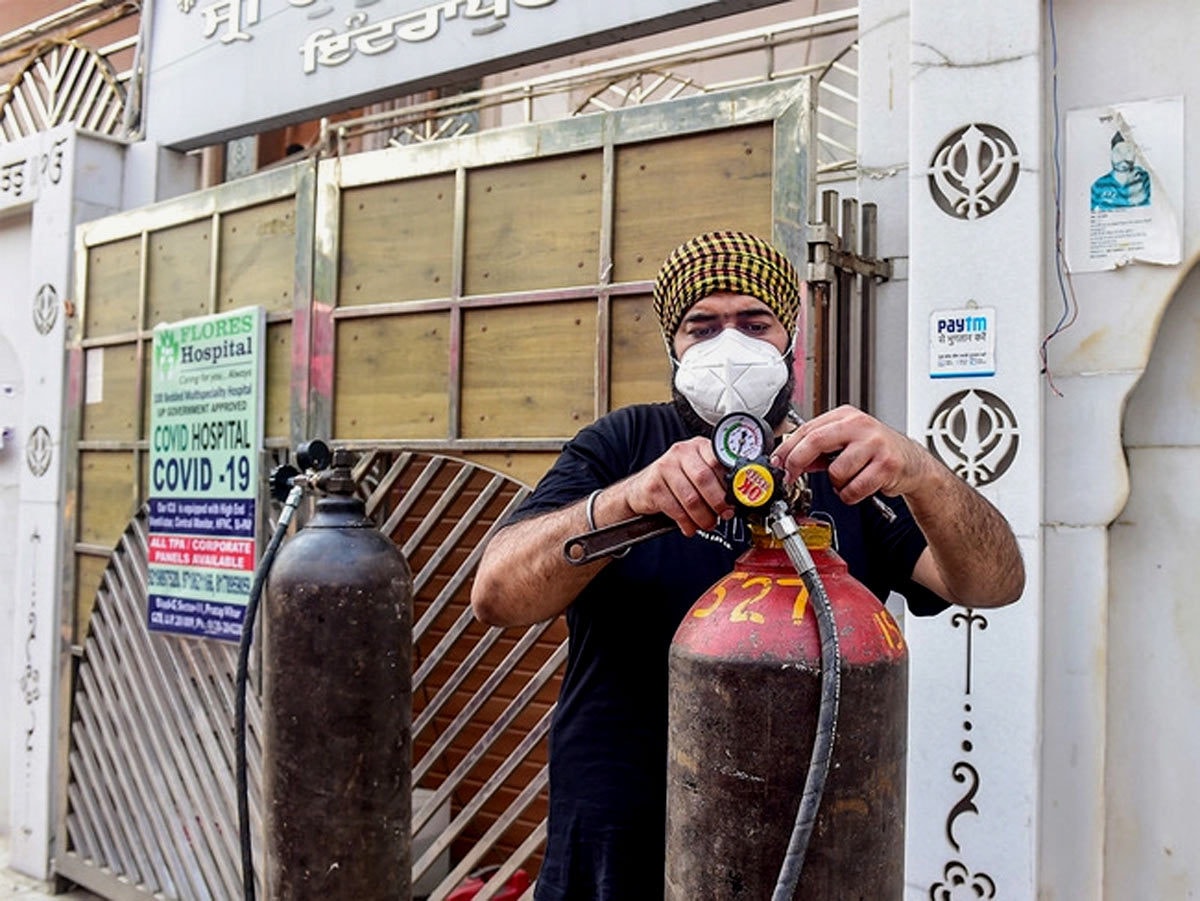Initiatives that save tens of thousands of people during Covid-19
The Indian government may not have done a good job in dealing with the second wave of Covid-19, but volunteers have really stepped up to the plate, filling in the gaps in the fight.
Many peopleIndiahave joined hands with the Government to handle the waveCovid-19The second is spreading disease and death across the country. Hospitals, testing facilities, even crematoriums are overwhelmed, while vaccines are in short supply.
Indian authorities wasted time during the winter lull, allowing the second wave to hit so hard they were caught off guard. But in that situation, ordinary people, charities, private companies and even elderly pensioners have “entered the fight”, coming up with unique initiatives to mitigate the crisis.
|
| Shanawaz Shaikh of Mumbai sold his favourite SUV to start a service providing free oxygen to patients. Photo: Times of India |
Devendra, a 38-year-old teacher from rural Jharkhand state, became a hero after receiving a distress call from a friend in Delhi, 1,400km away. He scoured his state for an oxygen cylinder and drove off in the hope of delivering the precious gift in time.
Meanwhile, on social media platforms like Twitter and WhatsApp, thousands of people are responding to pleas for help in finding a hospital bed, oxygen tanks, or simply money to pay medical bills. Many volunteers actively aggregate such requests and offers, allowing browsers to match needs with available help by topic and location.
Such efforts are sometimes local. For example, after seeing how difficult it was for his 80-year-old father to be hospitalized, Vishal Singh, who owns a chain of private schools, set up a fully equipped, free Covid-19 care center for local residents.
Pascal and Rozy Saldanha, a middle-class couple in Mumbai, sold all their jewelry to buy oxygen tanks to give to their poor neighbors. Residents in south Delhi are spreading word of a mysterious Food Man who roams the streets handing out food to the hungry.
Other initiatives are more structured. Khaana Chahiye was founded last year to help migrant workers forced to leave Mumbai when the lockdown left them jobless. The group began by setting up roadside kitchens, providing a hearty meal to those who had to walk hundreds, even thousands, of miles to their hometowns.
|
| Photo: Times of India |
Over the past year, Khaana Chahiye has served around 4.6 million meals, thanks to a team of more than 200 volunteers, and has now expanded to many slums across the city.
Longer-established charities have also pivoted to the fight against Covid-19. Nearly every Sikh temple, from the smallest to the largest, operates a regular kitchen. Several charities, including the Hemkunt Foundation, have also opened a center outside Delhi to provide free oxygen to those in need.
Indian tycoons have also joined in. Azim Premji – India’s biggest tech tycoon and philanthropist – donated about $1 billion to charity last year, either directly or through his companies, with $150 million of that going to Covid-19 research and relief.
Other entrepreneurs raised about $10 million almost overnight for Mission Oxygen to buy as many oxygen concentrators as possible overseas and ship them to Indian hospitals. Within a week, the group was able to import the first machines and had ordered 1,300 more.
The plight of desperate Covid-19 patients forced to knock on hospital doors in New Delhi has inspired authorities in Mumbai to run an efficient, centralized triage system to allocate beds.
In Nandurbar, a tribal district in northern Maharashtra, one of India’s worst-hit states, local officials studied what was happening elsewhere in the world and devoted all their limited resources to preparing for a second wave. His team focused specifically on equipping local hospitals and training medical staff.
If such efforts were replicated across India, they would save tens of thousands of lives.


